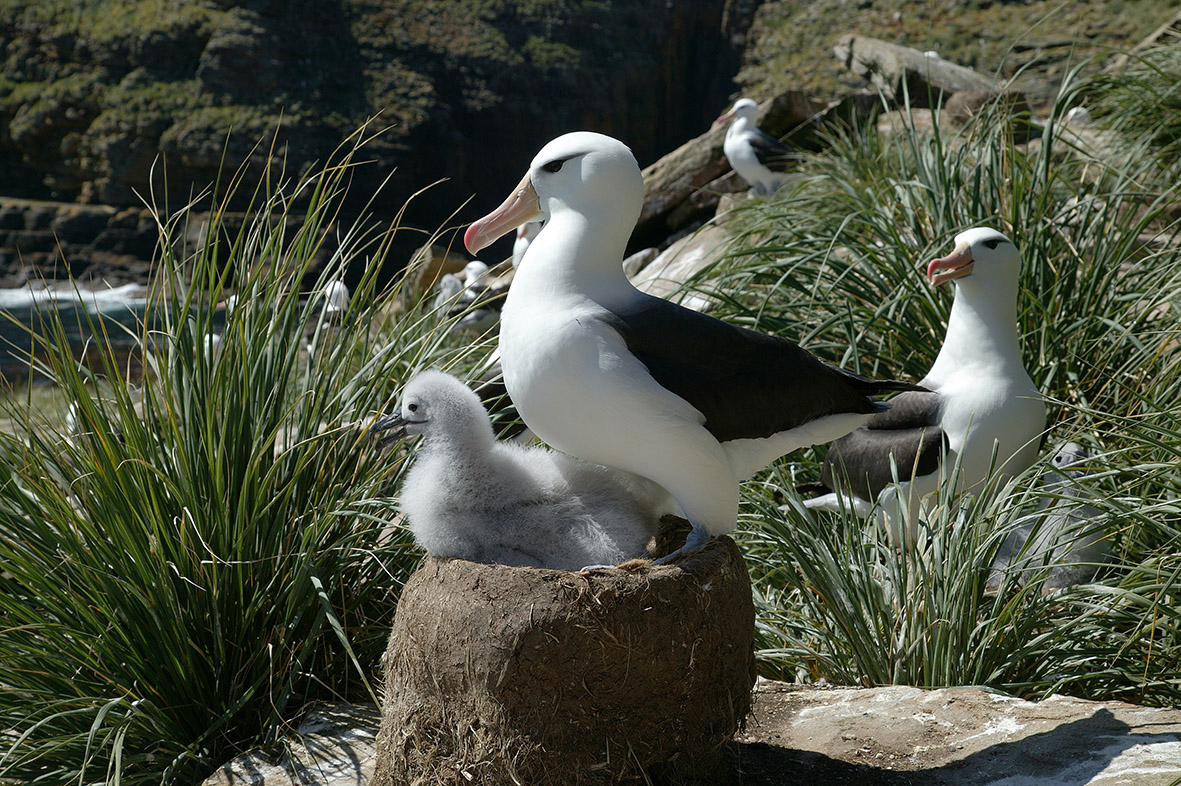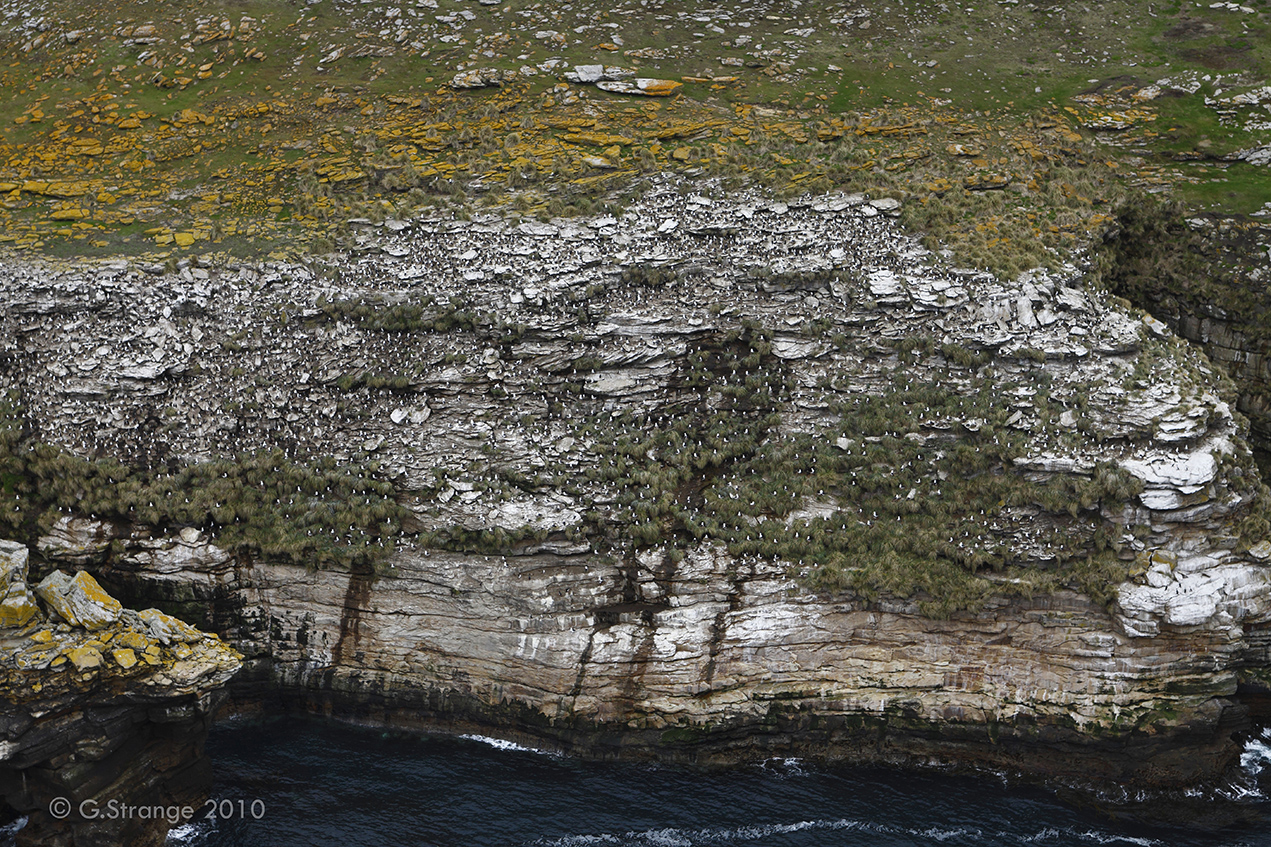
Black-browed Albatrosses breeding on New Island, photograph by Ian Strange
New Island in the Falkland Islands (Islas Malvinas)* is a breeding site for c. 17 700 pairs (in 2000) of Black-browed Albatrosses Thalassarche melanophris (Least Concern), less than 50 pairs of Vulnerable White-chinned Petrels Procellaria aequinoctialis , around 50 pairs of Southern Giant Petrels Macronectes giganteus (Least Concern) and very large numbers (over one million pairs; the world’s largest known colony) of Thin-billed Prions Pachyptila belcheri, as well as cormorants and penguins. Established as a private nature reserve in 1972, in 2006 the island came under the management of the New Island Conservation Trust. New Island is an Important Bird Area and a Key Biodiversity Area and a site for seabird research.

A Black-browed Albatross colony on New Island, photograph by Georgina Strange
The environmental NGO (and BirdLife partner) Falklands Conservation, which merged with the trust in July 2020, has this month announced a restoration project for New Island. Over the next two years the best approach to removing four invasive mammals (feral cats Felis catus, European Rabbits Oryctolagus cuniculus, Black Rats Rattus rattus and House Mice Mus musculus) will be investigated, with support from the UK’s Darwin Initiative grants scheme. Domestic sheep and cattle were removed from the island in the late 1970s.
Read more in Penguin News.
Reference:
Brown, D. 2013. Feasibility Study Report for the Potential Eradication of Ship Rats, Mice, Rabbits and Feral Cats from New Island, Falkland Islands. New Island Conservation Trust. 87 pp.
John Cooper, ACAP Information Officer, 23 June 2022
*A dispute exists between the Governments of Argentina and the United Kingdom of Great Britain and Northern Ireland concerning sovereignty over the Falkland Islands (Islas Malvinas), South Georgia and the South Sandwich Islands (Islas Georgias del Sur y Islas Sandwich del Sur) and the surrounding maritime areas.

 English
English  Français
Français  Español
Español